Nine Years
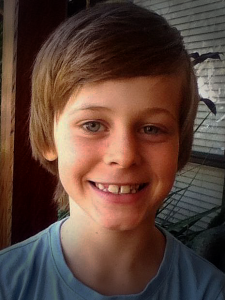 Background: The Gesell Institute of Child Development has observed that children go through a repeating sequence of six different stages with predictable changes in mood and behaviour in each. Nine Years is just one such stage. The behaviour observed in these stages reflects the qualities associated in tradition with the planets—in the case of Nine with Saturn.
Background: The Gesell Institute of Child Development has observed that children go through a repeating sequence of six different stages with predictable changes in mood and behaviour in each. Nine Years is just one such stage. The behaviour observed in these stages reflects the qualities associated in tradition with the planets—in the case of Nine with Saturn.
The developmental traits in these profiles represent only one aspect of children’s behaviour and may be masked, modified or intensified by other factors, both individual and environmental, such as temperament, gender related behaviours, high stress levels, over-stimulation, too much screen time or organic problems.
Note: If your child has turned this age but shows none of these behaviours, please read the previous age level, or just wait a few months, then read this again!
These profiles integrate the wonderful descriptions from the Gesell Institute of Child Development research and the ideas of Rudolf Steiner into my own research. Direct quotations from Gesell are in ‘single quote marks’ or indented.
View/download as pdf Nine
Nine
A stage with Saturn qualities
Gesell describes Nine as a very individual age, the most difficult in which to find consistent patterns. The developmental traits shown in different children and the behaviour shown from day to day in an individual child can seem quite contrary. Gesell describes Nine as ‘thoughtful and mysterious’, but also ‘neurotic, inward and troubled’ and more ‘in dis-equilibrium than in equilibrium’. If the qualities of Saturn are also considered, especially the self-awareness, deeper thinking and the often hidden sensitivity associated with Saturn, the Gesell observations can be seen in a more positive light.
Physical growth
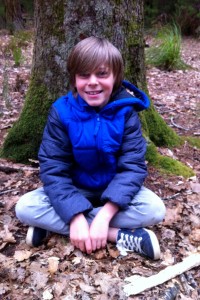 At Nine, the emphasis in physical growth is starting to move out of the head and nerve-sense system and into the chest, circulation and respiratory system. The psychological parallel of this new growth emphasis can be found in increasingly intense social relationships and a new awareness of self. Nine is a unique time physiologically; the breathing becomes properly integrated into the circulation, with the heart beat and breathing rhythm reaching the adult ratio of 4:1; the capacity of the heart for blood intake—the pulse volume—also suddenly increases and there is a temporary sinking of the blood sugar level. There is also a change in the regular orderly eruption of the teeth at this age.
At Nine, the emphasis in physical growth is starting to move out of the head and nerve-sense system and into the chest, circulation and respiratory system. The psychological parallel of this new growth emphasis can be found in increasingly intense social relationships and a new awareness of self. Nine is a unique time physiologically; the breathing becomes properly integrated into the circulation, with the heart beat and breathing rhythm reaching the adult ratio of 4:1; the capacity of the heart for blood intake—the pulse volume—also suddenly increases and there is a temporary sinking of the blood sugar level. There is also a change in the regular orderly eruption of the teeth at this age.
While Nines’ health is generally excellent, this is the time of the peak in ‘school illness’, in which complaints like stomach aches, headaches and tiredness have no clear origin. Carers need to be aware of Nines’ health peculiarities, and listen carefully to their complaints, including about fatigue. Gesell researchers comment:
[Nines] continue to throw off colds rather quickly… However, children who have previously had ear, lung or kidney complications may have a reoccurrence between the eighth and ninth year and may suffer a rather prolonged illness. There may also be an increased incidence of rheumatic fever, leg pains, and ear and throat discomforts.
Some at this stage show marked fatigue and need to be protected from doing too much. When things are, in his opinion, “too hard,” the Nine-year-old is very free with physical complaints. His eyes smart. His hands hurt. He has a stomach-ache. These complaints nearly always represent real physical feelings of discomfort….
The Nine-year-old is very much aware of inner symptoms that he feels when overexerted or strained. He may say that he is “shaking all over” or that he “feels funny inside” or that something makes him “feel dizzy.”
In this description we see something of the sensitive, more inwardly aware, (if also more melancholic) nature associated with Saturn in Nines. More sensitive people inevitably can feel more of the feedback from the body about wellness and discomfort than hardier, more outwardly focussed people. The symptoms of shaking and dizziness may also be explained by the temporary sinking of the blood sugar level. The effects of low blood sugar, like a lack of iron, can be quite disconcerting in its weakening effects, not just physically but in our strength of ‘self’. The heart, the blood and the blood sugar levels are all associated with the strength of the experience of the “I”, our selfhood. At nine there is certainly new awareness of self and a distinct individuation.
Appetite and eating habits seem to vary with the individual at this age. Generally Nines sleep well, though their sleep can be disturbed by many scary, horrid dreams, like the sleep of the children in the previous ages in this Gesell stage (21 months and Older Fours); Nines may also sleepwalk more at this age.
A few girls may start to develop breasts in this year and it seems these numbers may be increasing. There is some concern that factors like obesity and hormone-like substances in the environment are triggering breast development considerably earlier in some girls, even as early as six (African American) or seven (Caucasian American) according to one study – way ahead of the girls‘ emotional readiness for “puberty”. It is important that parents do not let this premature development guide their parenting, but follow the development of their children as a whole, including their emotional, intellectual and moral development, in providing appropriate guidance for these children.
Nines’ more refined sensitivities are also revealed in their manner of tension relief which is often through fine motor movements like fiddling, picking at cuticles, running their hand through their hair or shuffling their feet. However boys also let off steam by wrestling!
Sense of self
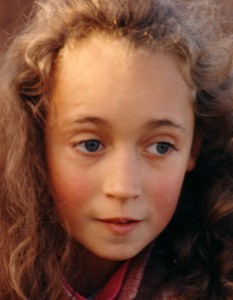 The new experience of ‘self’ at Nine is a significant one. Gesell observes that ‘Nine is above all an age when individuality seeks to reassert and to reorganize itself.’ Nines have growing awareness of their feelings, their emotional life and social relationships. The increasing awareness of the difference between inner and outer experience developing at eight brings a new discrimination between self and ‘otherness’ at nine and a half. Where earlier the child had lived in sympathy with, and feelings of “at oneness with”, the world, now feelings of separateness from the world are manifesting more strongly. For example, they experience more clearly that their own thoughts, feelings and intentions are different from those of others. Nine might say: “Mummy you may not like this, but…” Their emotional life is maturing.
The new experience of ‘self’ at Nine is a significant one. Gesell observes that ‘Nine is above all an age when individuality seeks to reassert and to reorganize itself.’ Nines have growing awareness of their feelings, their emotional life and social relationships. The increasing awareness of the difference between inner and outer experience developing at eight brings a new discrimination between self and ‘otherness’ at nine and a half. Where earlier the child had lived in sympathy with, and feelings of “at oneness with”, the world, now feelings of separateness from the world are manifesting more strongly. For example, they experience more clearly that their own thoughts, feelings and intentions are different from those of others. Nine might say: “Mummy you may not like this, but…” Their emotional life is maturing.
Nines’ experience now is not only of being more separate from others, but also of having an individual status, an individual destiny and an individual ‘self’ who guides it. Biographies sometimes tell of children who experience a glimpse of the future direction for their lives or meet person of real significance for their later development at this age.
This more intense experience of their own individuality in Nines shows in their new self-reliance, self-motivation and self-appraisal and also in their particular enjoyment of their little freedoms. This independence does not manifest first in rebelliousness (as it does with the Mercury stages) but in a serious, more contained sense of self. Gesell notes that Nines do not like ‘to be patronized’. They suggest that Nines make ‘a good solid, businesslike impression’ and can be practical and thoughtful, with a logical, investigative mentality, and with a quality of concentration that enables more intellectual depth and deeper insights. All these reflect Saturn qualities.
The more distinct feeling of separateness at Nine can sometimes be a lonely and painful experience and make this a time of a certain inward fragility. Questions arise about “belonging”; “who am I in relation to this family and others?” Nines may ask if they are adopted or even resort, in moments of unhappiness, to running away from home. They may show new interest in their own birth and early childhood, get out baby photos and even use baby talk and behaviour at times. It is a good time for parents to tell the child’s birth story and reassure them of how much they were welcomed and loved by their circle of family and friends and how they are valued within the family now. Nines can feel on the edge of childhood, and may feel caught in an inner conflict which they may even articulate—they want you to give them little freedoms and be treated as a grown up, but they also want to sit on your lap and be babied.
Their more contained sense of self may also increase feelings of separateness from others. Sometimes this new awareness leads to new feelings of vulnerability, fears and worries and is accompanied by an inner restlessness; Nines certainly worry more.
Thinking and the need for time
The effects of the experience of “separateness of self” can be seen in other aspects of their growth too. For example, Nines can no longer learn by pure imitation, which is based on a certain natural sympathy and “at-oneness with the world”. Nines’ thinking is still not yet abstract. Learning now takes more effort and they need to practice and repeat things more. They are more aware of their new limitations and can complain of having ‘poor memory’. Nines need to develop more adult memory strategies for remembering increasingly abstract information.
In their thinking Nines consistently show Saturn qualities. They are more methodical and they need time to think, to plan, to ponder. They are ‘relatively well organized’. This is not the time to ask them to do things quickly or immediately. Adults need to show patience and respect for Nines’ process here. Gesell describe this in how Nines attack a new task with ‘reflectiveness’ , saying characteristically, “Let me think about it. I always have to think first.” They like ‘to plan in advance and to see ahead…[and follow] successive steps.’
Hurrying goes against their whole way of being at this age for Nines are discriminating and can be perfectionists. This needs time. They are interested in reality and the details of life in a new way. They seek and can discern significance in the details. For example, with more awareness of the separateness of body and mind, they are interested in the “process” of death (e.g. that when we die the heart and the breathing stop, but they may want to know what stopped first for Grandpa when he died, his heart or breathing).
At the same time, they love to find the connectedness of things, perhaps as a way to reconnect with the world. Their newfound intellectual capacity to classify and order their world also brings new delight in making lists and inventories, in facts, categories, hierarchies, details and tidbits. This is may be the age at which children, across the generations, have written on their books something like: “This book belongs to Gerald Alexander Moore, 2 Princes Lane, Charleston, Melbourne, Victoria, Australia, The World, The Universe” categorizing their place in their expanding world.
This interest in classification also flows over into their social world, for Nines also have a keen emotional and intellectual interest in rules, procedures, privileges and punishments, particularly at school or in club life. This is the age of author Enid Blyton’s Secret Seven and secret clubs—you the adult may only know about them because you found the club rules scrawled on a piece of folded paper in a pocket at clothes washing time! Secrets between people deepen connections which is important for Nines.
Now is a good time to reinforce the idea that there are “good” and “bad” secrets and “bad” secrets should not be kept secret if someone’s wellbeing is at risk. “Safety” has a higher priority than “honour” here. It helps for children to have this affirmed by respected adults from time to time. This is part of teaching protective behaviours to prevent abuse. (Freda Brigg’s books are recommended for more on keeping children safe.) Teaching children about personal safety, like teaching them about their bodies, reproduction and sexuality is always best done by parents as opportunities arise, all through childhood. This makes it part of living and encourages natural talk about it and makes it easier for children to more casually ask questions without it being a “big thing”.
For more information see Prevention of sexual abuse of young children
Emotional development and sensitivity
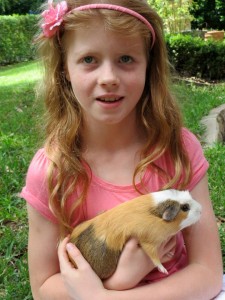 Clearly Nine’s emotional life is deepening. The gift of being Nine may be to experience deep sensitivity, true to Saturn qualities. Gesell observes that Nine is better able to ‘experience and to express finer shades of feeling. His voice has softened, his tensional outlets are more delicate, his disgusts more dainty.’ His evaluations too are ‘deeper and more discriminating’. He is ‘more sensitive, more refined. Just as the lens of his eye has greatly gained in capacity to accommodate to small distances, so his total organism has made a notable gain in capacity to feel small values and to accommodate refined differences.’
Clearly Nine’s emotional life is deepening. The gift of being Nine may be to experience deep sensitivity, true to Saturn qualities. Gesell observes that Nine is better able to ‘experience and to express finer shades of feeling. His voice has softened, his tensional outlets are more delicate, his disgusts more dainty.’ His evaluations too are ‘deeper and more discriminating’. He is ‘more sensitive, more refined. Just as the lens of his eye has greatly gained in capacity to accommodate to small distances, so his total organism has made a notable gain in capacity to feel small values and to accommodate refined differences.’
The challenge for adults is to work with this sensitivity in positive respectful ways, not to squash it or denigrate it. The world needs such sensitivity in all of us. Now is the chance to teach children how to look after themselves so they can keep such sensitivity, not have to harden themselves and lose it. This means encouraging them to take personal space when they need it, respecting this, their privacy, their need for independence and their need for more time. It also means allowing them to feel deeper emotional responses to things, deeper sadness, deeper feelings of sympathy, even if you cannot personally relate to these things at the time. Do not force them to hide it behind a business like exterior!
All this is not always easy for those who live with Nines! Nines express very strong likes and dislikes. Their inner restlessness may manifest as “complaining-ness” and variability of mood – now timid, now bold, now cheerful, now grumpy, now shy, now absent-minded. Gesell describes how Nine may be so ‘absorbed in what he is doing, he may not hear his mother’s request.’ Nine will ‘withdraw from his surroundings to gather up his sense of self and put it to good use, but he does not retreat far into himself as he did at seven.’
Relationships with adults
Despite their need for independence, Nines also need active adult support. Because Nines can be such great worriers, they need more reassurance. They can be anxious to please, want to be liked and love to be chosen. They thrive on praise from the adults in their lives. Note however, they usually do not want to be praised publicly in the company of their peers, because this puts them above their peers at a time when they want to be seen to be the same as their peers. In these instances, it is better to wait until you are alone with them.
Nines’ estimates of others can be, in Gesell’s term, ‘penetrating and accurate’. This capacity to discriminate has increased such that adults are also now under their scrutiny. Nines still feel loyalty to home but they also feel the pull of independence and detachment. This means that you need to be worthy of their loyalty, as striving, moral individuals. For Nines still need the guidance of an adult authority to strengthen Nines’ own inner voice. But adults must now be truly worthy of their authority or they will be challenged by Nines. There is no place here for phlegmatic, “jelly fish” parenting (thanks to Barbara Coloroso for this apt image). They need authority figures with “backbone”!
Nines need to see you anew in your areas of expertise, both personal and professional. Share these things with them more— let them see where you work, what you do, who you work with. An occasional comment from a work colleague (or fellow parent) who knows the value of your work (including as a parent) can be very helpful. They need good models of how adults can stand with courage and optimism in the face of the difficulties of their own lives. This empowers and strengthens children.
It is also helpful to Nines to learn that there can be a moral authority higher than the human individual: of God, for those with religion, of the highest moral ideals and lasting human values, for others. It is these that can sustain the adolescent when parents and other authority figures fall off their pedestals in their human weakness.
All that said, there is another important change which parents need to be aware of with Nines. Nines now need a certain independence because they need to build connections with people other than family. Nines’ intense interest in peer friendships and finding new ‘authorities’ may sometimes leave parents feeling neglected, especially after the intense interactions with the eight year old in the previous year. Parents can be assured that Nines do generally like home and feel loyalty to the family. They may glow with pride at a “wonderful” father. Yet in public they want a certain detachment from the family and they do want and need to be with friends in a new way. They need your respect for this.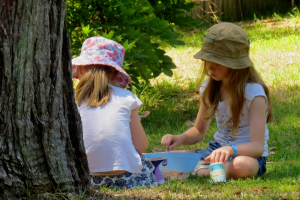
Relationships with peers
Nines are intensely interested in their peers. As we have seen, this is the “gang” time, the time for clubs with their secret rules. Perhaps belonging to a group helps to compensate for their feelings of individual aloneness. Nines love to talk and plan with friends. They may make new special friends. They may build deeper and longer lasting friendships, and try to be loyal and devoted in those friendships. They get upset if their friends are attacked or hard done by, or criticised publicly by a teacher. Like Saturn, Nines also expect loyalty in return from their friends and can be deeply hurt by fickleness in friendships.
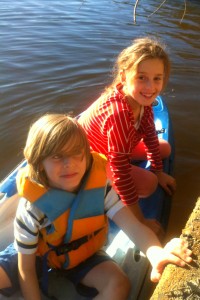 It is most helpful if parents can try to help Nines to keep perspective in social struggles rather than taking sides. Encourage your children all the way through school to always try to be courteous and friendly to everyone. This not only makes a happier world but helps them to be less vulnerable at times of ‘falling out’ with friends, as so often happens at Nine. It may be that your friendly accepting child may then be pestered by the “rejected” children, who have no other friends. Your child will have to find a way to deal compassionately with these children. This is an important life lesson in recognizing the needs of others, and also recognizing one’s own needs.
It is most helpful if parents can try to help Nines to keep perspective in social struggles rather than taking sides. Encourage your children all the way through school to always try to be courteous and friendly to everyone. This not only makes a happier world but helps them to be less vulnerable at times of ‘falling out’ with friends, as so often happens at Nine. It may be that your friendly accepting child may then be pestered by the “rejected” children, who have no other friends. Your child will have to find a way to deal compassionately with these children. This is an important life lesson in recognizing the needs of others, and also recognizing one’s own needs.
This learning is also important now because Nines are particularly vulnerable to group pressures and bullying. New psychological awareness of how others feel can enable, on the unhealthy side, a lot more emotional manipulation – especially amongst girls, and on the healthy side, more compassion. Nines are still gathering inner strength and understanding about themselves as individuals in their own right. This is a time of learning about the individual alone and the individual as part of the social group, and that in our society, both are important. This is a time for adults to encourage Nines to be true to what they feel is right, to be true to themselves, and for adults to support them in doing this.
Adults (including teachers) can reaffirm the value of individuality, by giving permission to be ‘different’, showing them that each individual, each family, is ‘different’ and do things in different ways, with different values and that is what makes life rich and interesting. This value for ‘individuality’ can be supported, for example, by encouraging in Nines’ room decoration to include a display of things that make them individual— the child’s interests, (pets, activities, pictures of favorite friends and family etc.) Increasingly from this time on the pressure may be to eclipse these ‘individual expressions’ and replace them with the values and interest of the “group”- current idols, fashions, music. The commercial world is aiming to capture this “Tween” market (seen as 8 –12 years) so start early in encouraging the child to keep the balance between individual interests and those of the group, which is the target of this marketing push. These influences often show more strongly in those Nines who have older siblings.
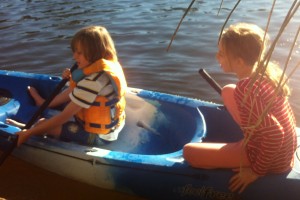
Moral development
In their moral development, Nines have an impressive sense of fairness and an elementary sense of justice. There is an earnestness and conscientiousness in Nines’ striving to do what they think is right, living up to their own moral code, which is reminiscent of the Saturn type. Nines have a deeper, if still simplistic, understanding of the need for rules and understand better what is wrong than what is right. They like to do the right thing and object when others do not do so! In favorable conditions they are essentially truthful and honest, despite the common use of alibis! They now have a better grasp of the adult understanding of the ‘lie’ and its intentionality (versus ‘verbal mistake’ etc.) and are capable of lying in this sense. Conscience is clearly developing at nine and the increasing ability to see the other’s point of view allows the development of empathy.
Nines like and need to be trusted and to have little freedoms without supervision. This might be to walk to the corner shop. It is important for parents to recognize this need and find ways for them to practice doing more things alone (when they ask for it and if appropriate) while still having safety strategies in place. Teaching them about appropriate people and places to turn to when worried or in trouble is now essential. It may be they get to do bigger things by themselves but with you still available to them somewhere nearby. This is about helping them to learn about stepping out into the world in small steps. It is reassuring to hear from Gesell about a healthy Nine that: ‘All in all he is dependable and responsible.’ Note, however, that Nines still do not have good road sense on their bikes! This capacity is limited by still immature cognitive judgment, which will improve over this year. This is another area where you can give them the experience with your backup support by riding with your children on the roads, before they do it on their own in another year.
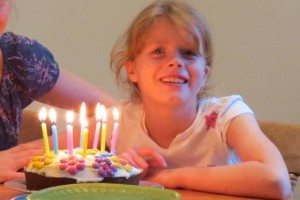
Strong will and organising skills
The strong will associated with Saturn qualities is also to be found in abundance in Nines. Gesell identifies Nine’s key traits as ‘his realism, his reasonableness and his self-motivation’ all of which means Nines are well placed to get things done on their own. This is not the big thinking, exaggerated gesture of Eight but the self directed, serious, conscientious gesture of Nine. Gesell describes Nine as a ‘factual, forthright’ young person, someone who ‘likes to tax his skill, to put himself on his own mettle’ and who is ‘able to summon reserves of energy and renew his attack for repeated trials.’ For Nine is interested in ‘perfecting skills and he likes to do the same thing over and over again.’
Gesell further describes how Nines put their thinking and strong will to work: They are well organized and persistent. They plan in advance, can see ahead and like to complete a task, though they may still overdo things! They are sometimes so busy they cannot find time for routine tasks. They dislike interruptions, though can in fact interrupt themselves. They can be so involved in their own tasks that they seem a bit absent-minded (‘in a daze’) even ‘deaf’. Nines certainly benefit from reminders, gentle hints and second chances. They seek correction and can be fair-minded and responsible. In their own way, the best part of nine is quite remarkable, despite their tendency to melancholy and over-sensitiveness, just like the Saturn type of personality.
Gender differences and sexual development
One last phenomena at this age should be mentioned, what we might call “resistance to the opposite gender”. Developmental differences between the genders and within the same gender are becoming greater. They show more awareness of the reproductive aspects of sex. Often each gender appears to disdain the other; this is, strangely, indicative of a healthy growing awareness of the other. However this may manifest negatively in teasing, spying on or insulting the other gender, for example, with gender based rhymes. (“Boys/girls are weak, throw them in the creek, girls/boys are strong, like King Kong!”) It may also manifest in gestures of repugnance with muttering about “boy/girl germs” and reluctance to stand next to each other.
It is helpful for parents and teachers to accept this reluctance as developmental and not force contact. It helps too, to speak only positively and appreciatively about gender differences and to ban all gender insults, as they hopefully ban all other put-downs in their family or classrooms. It is another aspect of teaching respect for differences, one that can be broadened to include respect for differences in race, culture, religious belief, and so on.
This is not an age very open to sex education because, despite Nines matter-of-fact-ness, there is still so much ‘repugnance’ felt towards human sexual activity. Give them a few more years and this gender and sex information resistance softens and a healthy, if shy, curiosity takes its place. Healthy curiosity may be a better sign for the need for information about sexual intercourse than even early breast development and apparent sexual precocity in a few.
Children by this age need to be told what to expect about menarche and spermache (first menstruation in girls, first ejaculation in boys) and about changes in the breast tissue in both boys and girls. This should be introduced with deep respect for these processes and it should be emphasised that boys and girls need to be very respectful and sensitive about these processes in the other sex. The need for this information is different from what they will need a little later about sexual intercourse. The two sorts of information do not need to be given together.
For more information see Sex and your teenager
In summary, Nine is a very interesting year. It is truly a year of transition. Nines need our understanding and active support for their feelings of uncertainty as they stand on the edge, with childhood on the one hand and the reality of growing up and their future on the other. The qualities of Saturn are clearly seen at Nine in their thinking, their deep sensitivity and their determined will. Their increased interested in their peers accompanies a development in empathy and their increased need for freedom and independence needs appropriate support from adults.
View/download as pdf Nine
Further reading
Bates Ames, L, & Chase Haber, Carol Your Nine Year Old Thoughtful and Mysterious (A Dell Paperback, New York, 1990)
Payne, Kim John, with Lisa M. Ross Simplicity Parenting Using the Extraordinary Power of Less to Raise Calmer, Happier and More Secure kids (Ballantine Books Trade Paperbacks, New York, 2009) Or view their website www.simplicityparenting.com
Briggs, Freda and McVeity, Michael Teaching children to protect themselves (Allen and Unwin 2000)
See also
Avoiding trouble with sevens to tens
Developing sexuality and the prevention of sexual abuse in young children
Strategies for healthy living in the family
Enriching life with children
Building self esteem and resilience
Eight years development profile
Ten years development profile